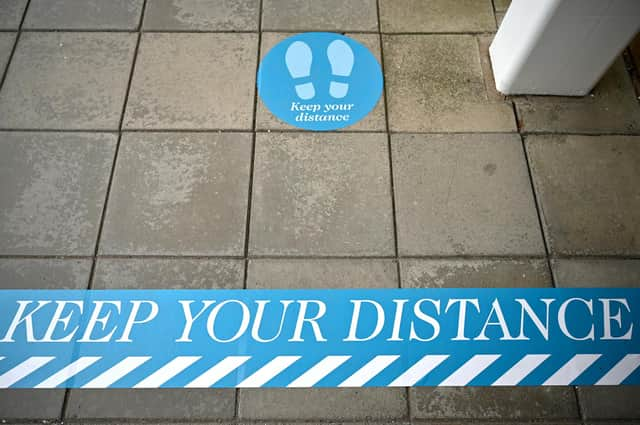Employers, shielding, and getting back to work - comment


Now shielding has come to an end, employees previously in this position are citing feelings of anxiety, with reports of individuals and charities worried that they may have to choose between “a job and their health”. At the same time, now that schools have returned, there is a sense that businesses will also be starting to return to “normal,” with more employers taking steps to facilitate the return of larger numbers of employees to their usual place of work.
Employers are already facing difficult decisions in confusing and challenging circumstances, with some GPs advising patients previously required to shield to continue to do so, despite the government’s position changing in early August.
Advertisement
Hide AdAdvertisement
Hide AdEmployers could well face a situation where two employees with the same or similar conditions receive conflicting medical advice, creating a scenario that needs to be handled very carefully. It might be a reasonable adjustment to allow an employee to continue to work from home where possible, with a fixed date when this will be reviewed; or to take unpaid leave.


Although the official end to shielding in the UK suggests that employers have the green light to get employees back to work, this does not change an employer’s duty to make reasonable adjustments. This is a duty the law places firmly on employers.
If an employer knows an employee has a significant health condition as a result of which they have been shielding, that employer should be discussing the change in government position with the employee now, with a view to agreeing a plan for the employee’s return to work or reaching an alternative arrangement.
Reasonable adjustments have to be considered by the employer on an individual basis – there can be no general rule applied here and every disabled employee will have different needs.
However, it might be a reasonable adjustment to allow an employee to continue to work from home where this is possible, with a fixed date when this will be reviewed; to put in place different working hours or duties to avoid the need for peak time travel or certain people-facing tasks; for example.
The question of adjustments is a live one, even for employees who have not been shielding but working from home, and may now be required to travel to their place of work all or some of the time.
Decisions
Employees may feel understandably anxious about being required to physically return to work, and employers are in the uncomfortable position of having to decide what is a significant mental health condition amounting to a disability in the law, and what is simply a “normal” everyday reaction to the uncertainty and worry the pandemic has caused for many people.
There is no general requirement to pay a disabled employee more than one who is not disabled, so the requirement to make adjustments is unlikely to cover extending sick pay.
Advertisement
Hide AdAdvertisement
Hide AdHowever, where an employee’s GP is advising that they continue to shield, the employee may well be best considered as off sick and there may be other circumstances where this is relevant, so it is best to take advice. There appear to be variations across the UK where local lockdowns apply. For example, in Aberdeen, local lockdown guidance said shielding was not required but that was not the case in the north of England.
These geographical differences will not assist employers, and means some research as to what is in place will be required. This will no doubt change over time. Shielding employees were entitled to statutory sick pay (SSP) while shielding was required.
To qualify, the individual had to have been “advised by a shielding notification sent to, or in respect of, that person in accordance with that guidance, to follow shielding measures for the period specified in the notification”. As shielding has now ended, the vast majority of employees will not be covered by valid notice.
Anne Sammon, partner and employment specialist at Pinsent Masons
A message from the Editor:
Thank you for reading this story on our website. While I have your attention, I also have an important request to make of you.
The dramatic events of 2020 are having a major impact on many of our advertisers - and consequently the revenue we receive. We are now more reliant than ever on you taking out a digital subscription to support our journalism.
Subscribe to scotsman.com and enjoy unlimited access to Scottish news and information online and on our app. Visit https://www.scotsman.com/subscriptions now to sign up. By supporting us, we are able to support you in providing trusted, fact-checked content for this website.
Joy Yates
Editorial Director
Comments
Want to join the conversation? Please or to comment on this article.